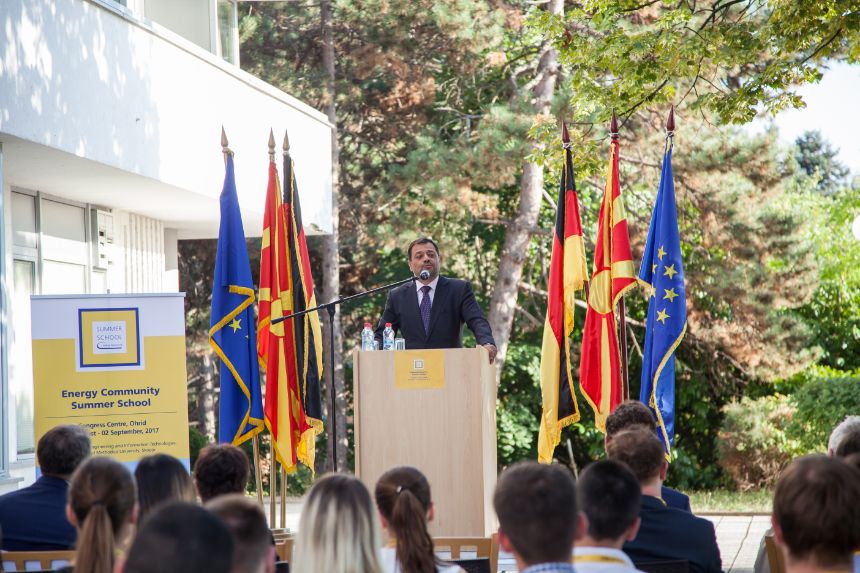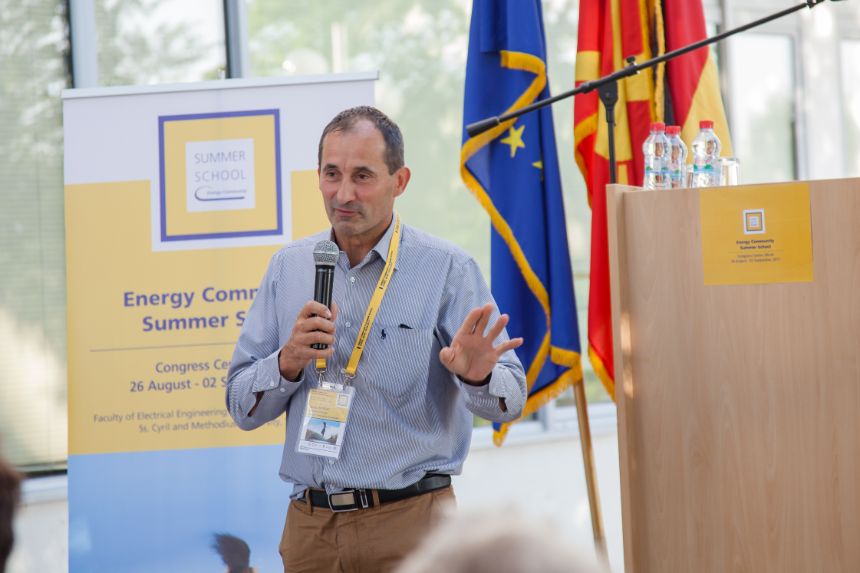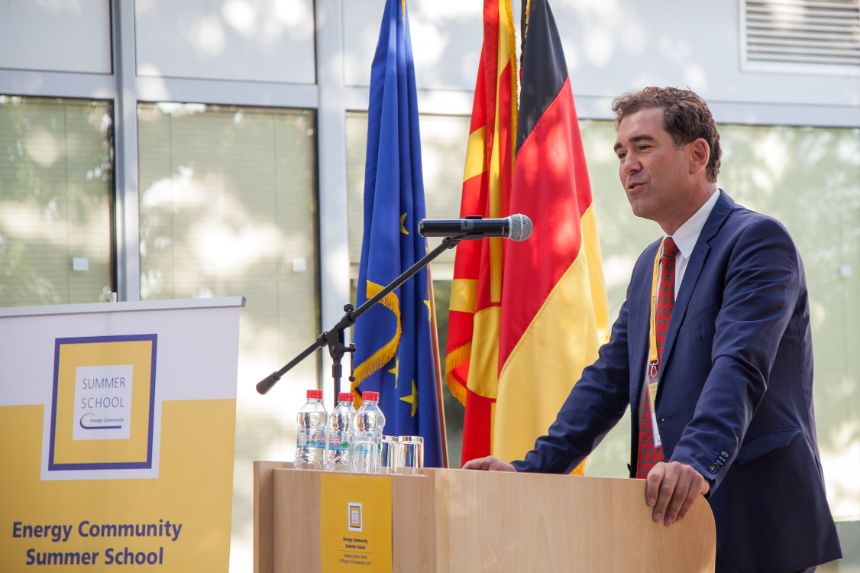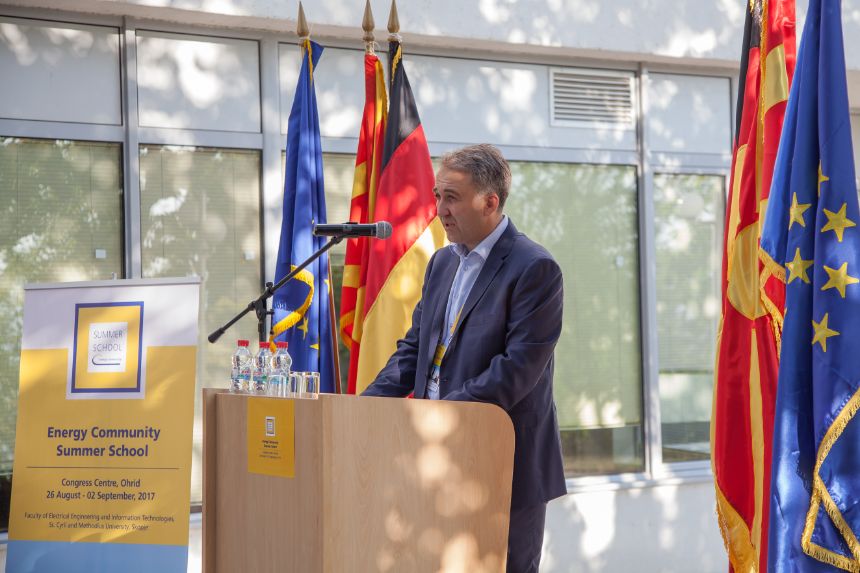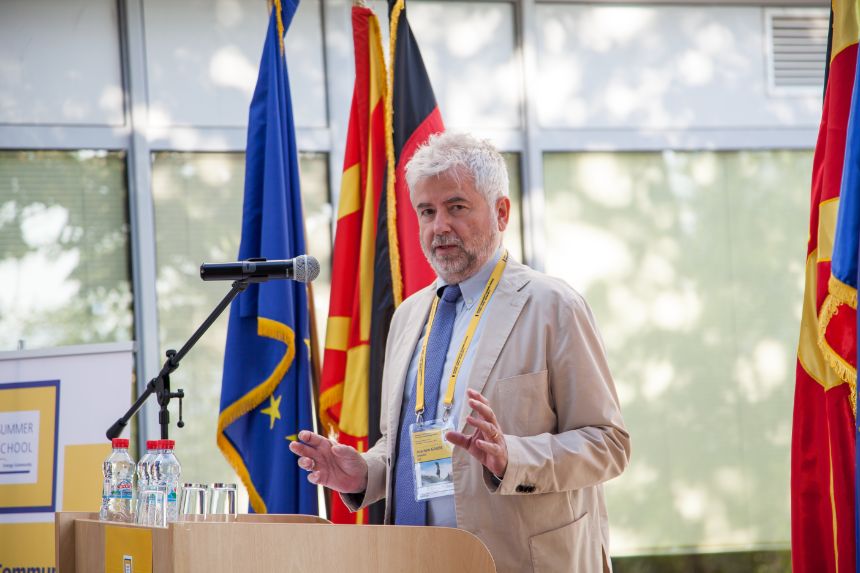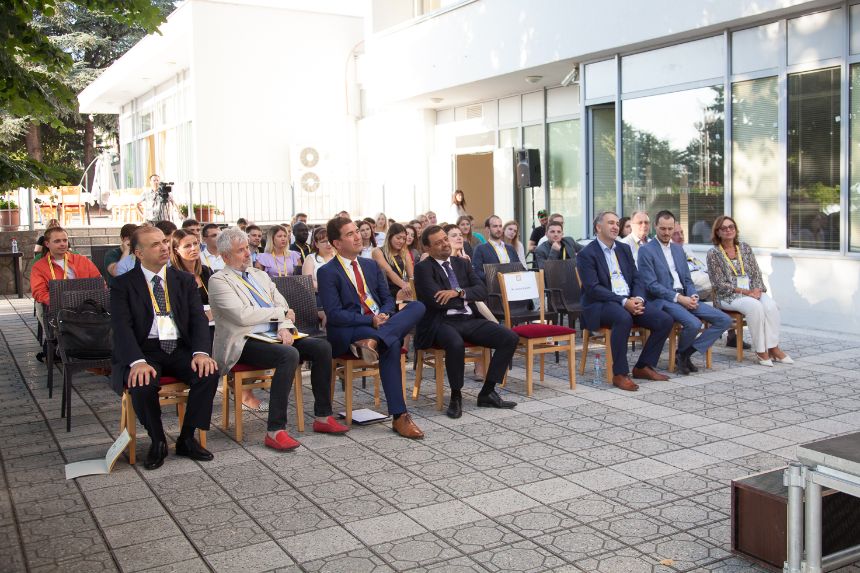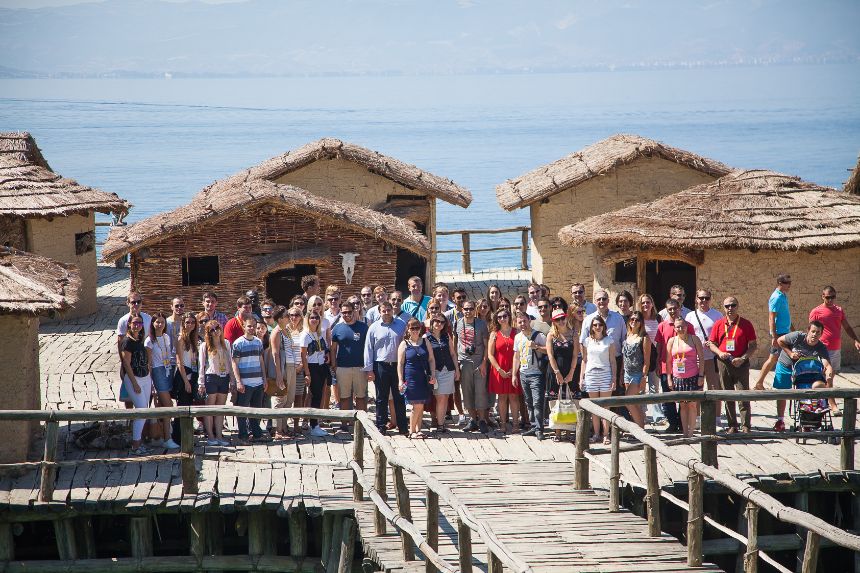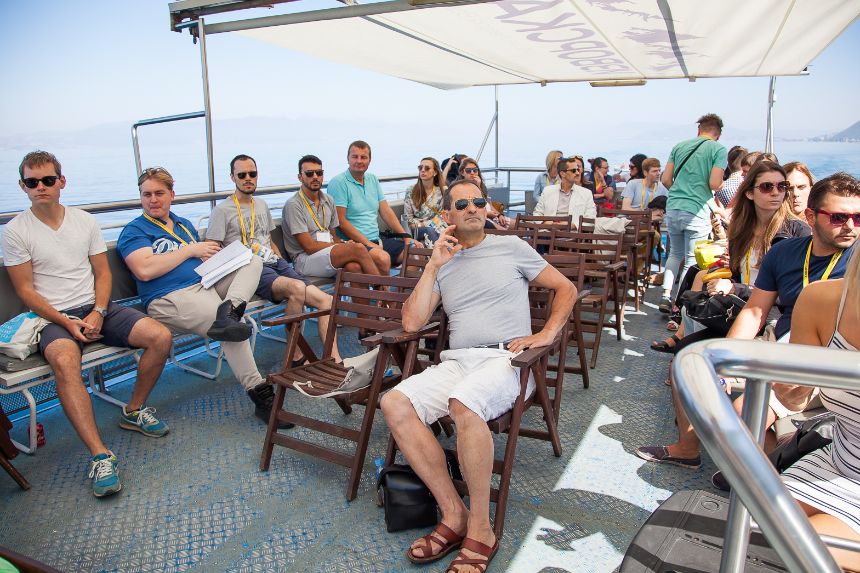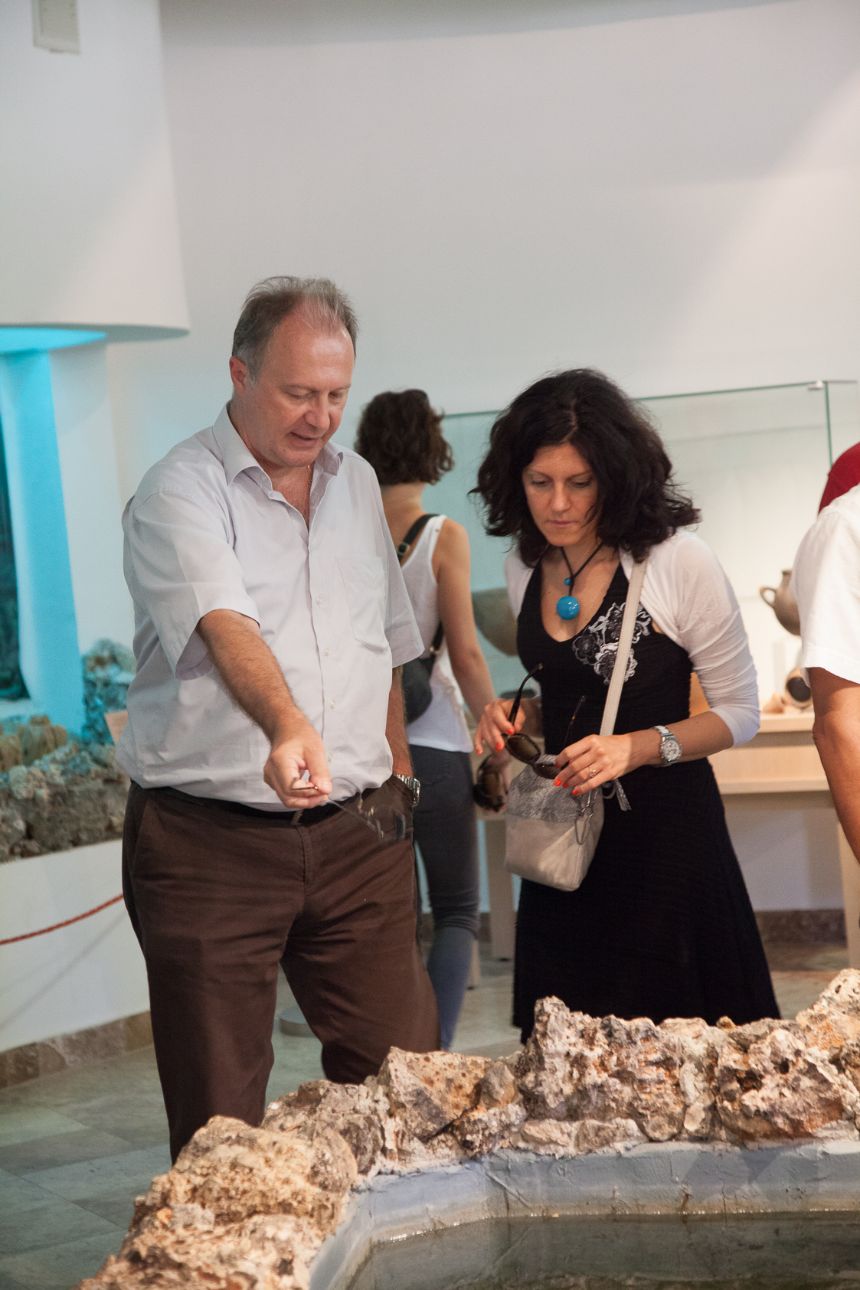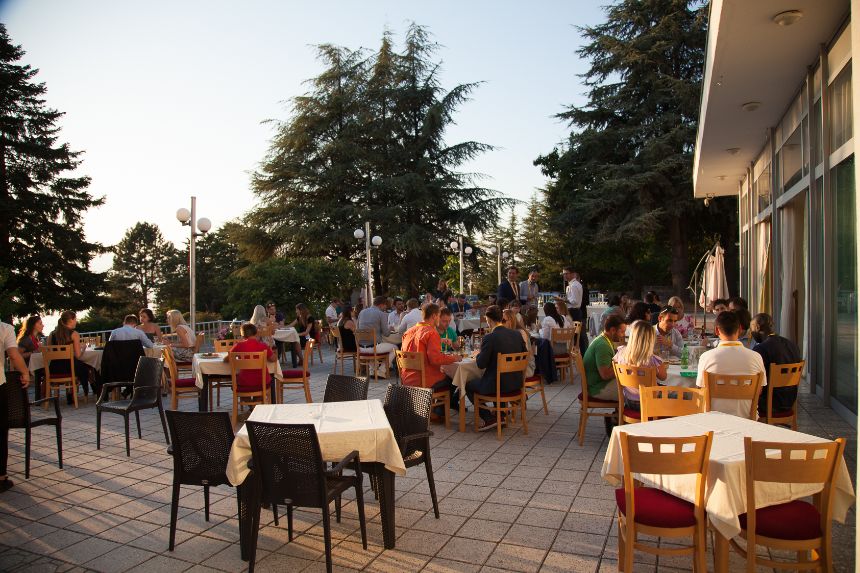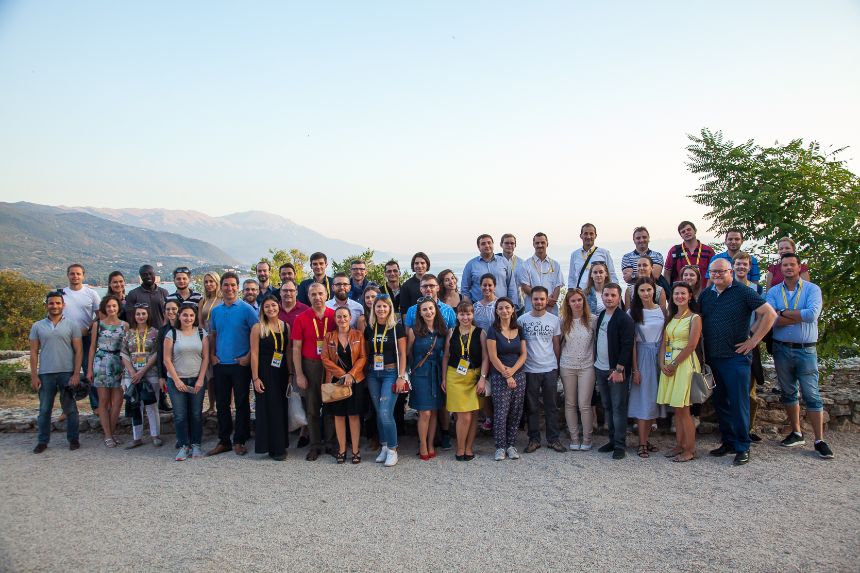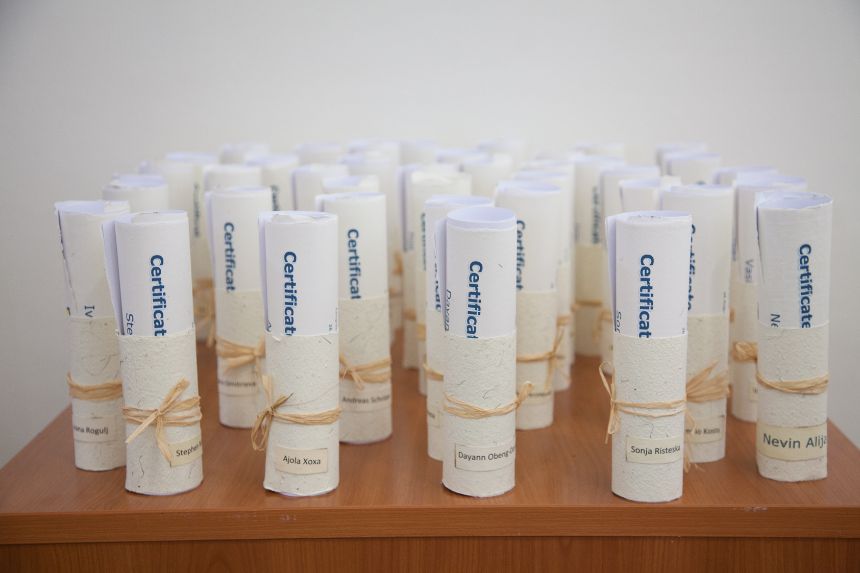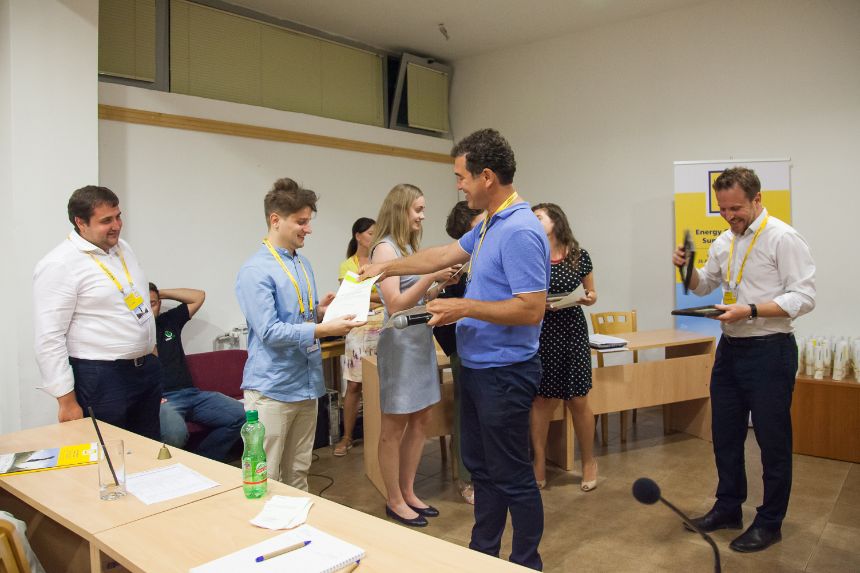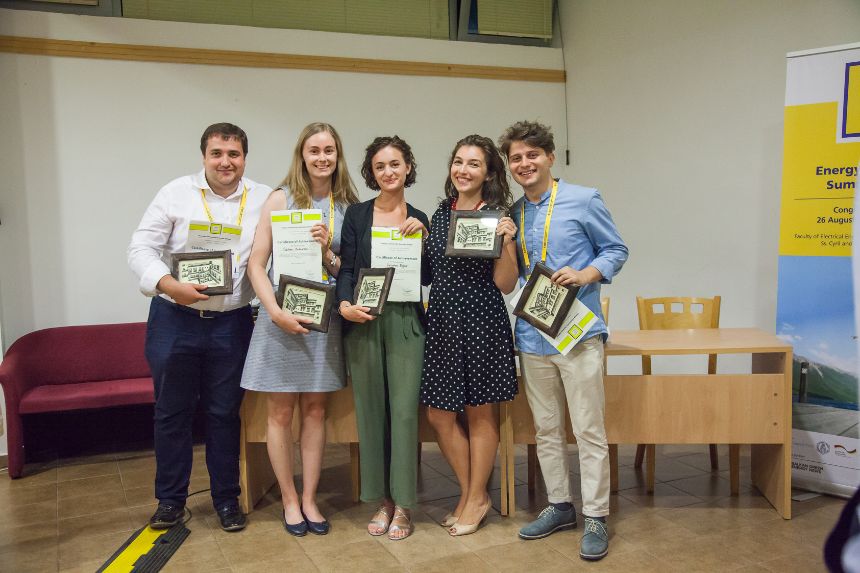Second Summer School 2017 |
|
|---|---|
| Venue: |
Congress Centre Ohrid, North Macedonia |
| Date: |
26 August - 2 September 2017 |
| Duration: | 1 week |
| Organizer: | Energy Community Secretariat |
| Credits: | 3 ECTS (for masters students) |
| Application deadline: | online only, by 31 March 2017 |
| Fees: | No tuition fee is required |
-
Programme
Programme - aims and results
The main focus of the 2017 Summer School was on energy sectors in transition, in particular in but not limited to South Eastern and Eastern Europe. This is a region in need of more sustainable, open, transparent and integrated energy markets and infrastructure. The region faces unique challenges for which we need creative solutions: how to diversify our supply sources, how to implement the Paris Agreement and how to create regional energy markets were just some of those. To understand the challenges and contribute to possible solutions is important for its future decision-makers, but also for entire Europe. It is especially important for the Energy Community, which has rightly be referred to as an 'Energy Transition Community'.
The Summer School week started with high-level key note speeches, followed by presentations in five topic-related sessions. Panel discussions, case studies, a site visit to a hydropower plant, group works and the final energy debate guaranteed continuous interaction between the students, lectures and the Secretariat. At the end of the week the student had benefitted from 28 expert lectures, networking opportunities and cultural activities to discover Ohrid and its surroundings.
-
Participants
Participants
The 2nd Energy Community Summer School was organized in Ohrid, North Macedonia with the participation of 40 postgraduate students and young professionals.
The participants were selected from 188 on-line applications submitted to the Energy Community Secretariat by 31 March 2017. Out of 188, 135 applications from 29 countries were classified as successful. In May 2017, 40 candidates representing 25 different nationalities were offered to participate in the 2017 Energy Community Summer School.
True to gender balance, 20 of the successful applicants were women, 20 men. All successful participants held an academic degree; 30 masters and 10 PhD.
2017 Energy Community Summer School participants by nationality
-
Partners
Energy Community Summer School Partners
The project was organized by the Energy Community Secretariat in cooperation with the Visegrad Fund, Faculty of Electrical Engineering and Information Technologies, Skopje and the Open Regional Fund for South-East Europe – Energy Efficiency (ORF-EE), which is financed by the German Federal Ministry for Economic Cooperation and Development, and implemented by the Deutsche Gesellschaft für Internationale Zusammenarbeit (GIZ). Whilst Central Central European Initiative was a new co-financer, Polis University, Tirana; Comenius University Bratislava; Jagiellonian University, Krakow; Masaryk University, Brno and REKK, Budapest act as project partners since 2016.
Co-funding 

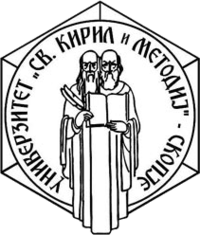
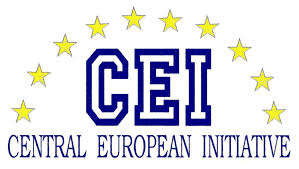
The project is organized by the Energy Community Secretariat in cooperation with:
Project partners 
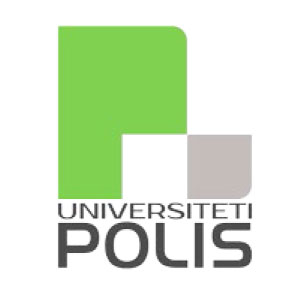




This was 2017 summer school - video
SS2017 photos
26 August - 2 September 2017, Ohrid
SS2017 photos
26 August - 2 September 2017, Ohrid
26 August - 2 September 2017, Ohrid
26 August - 2 September 2017, Ohrid
26 August - 2 September 2017, Ohrid
26 August - 2 September 2017, Ohrid
26 August - 2 September 2017, Ohrid
26 August - 2 September 2017, Ohrid
26 August - 2 September 2017, Ohrid
26 August - 2 September 2017, Ohrid
26 August - 2 September 2017, Ohrid
26 August - 2 September 2017, Ohrid
26 August - 2 September 2017, Ohrid
26 August - 2 September 2017, Ohrid
26 August - 2 September 2017, Ohrid
26 August - 2 September 2017, Ohrid

